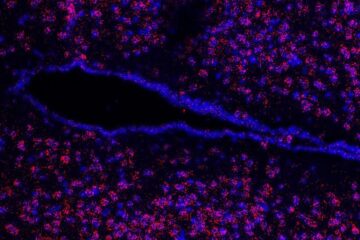Viruses may play a role in lung cancer development

Experts agree that smoking is by far the most important factor that contributes to lung cancer development. But other factors can play a role in some cases.
In one report at the conference (Abstract No. 124PD; Friday 25th April, 09:50) Dr. Arash Rezazadeh and colleagues from the University of Louisville, Kentucky, USA, describe the results of a study on 23 lung cancer samples from patients in Kentucky.
The researchers found six samples that tested positive for the presence of human papilloma virus (HPV), the virus that also causes many cases of cervical cancer. One was later shown to be a cervical cancer that had spread to the lungs.
Of the remaining 5 virus-positive samples, two were HPV type 16, two were HPV type 11 and one was HPV type 22. “The fact that five out of 22 non-small-cell lung cancer samples were HPV-positive supports the assumption that HPV contributes to the development of non-small-cell lung cancer,” the authors say.
All the patients in this study were also smokers, Dr. Rezazadeh notes. “We think HPV has a role as a co-carcinogen which increases the risk of cancer in a smoking population,” he says.
In another paper (Abstract No. 125PD; Friday 25th April, 09:50), Israeli researchers suggest that measles virus may also be a factor in some lung cancers. Their study included 65 patients with non-small-cell lung cancer, of whom more than half had evidence of measles virus in tissue samples taken from their cancer.
“Measles virus is a ubiquitous human virus that may be involved in the pathogenesis of lung cancer,” says lead author Prof. Samuel Ariad from Soroka Medical Center in Beer Sheva, Israel. “Most likely, it acts in modifying the effect of other carcinogens and not as a causative factor by itself.”
Media Contact
More Information:
http://www.esmo.orgAll latest news from the category: Life Sciences and Chemistry
Articles and reports from the Life Sciences and chemistry area deal with applied and basic research into modern biology, chemistry and human medicine.
Valuable information can be found on a range of life sciences fields including bacteriology, biochemistry, bionics, bioinformatics, biophysics, biotechnology, genetics, geobotany, human biology, marine biology, microbiology, molecular biology, cellular biology, zoology, bioinorganic chemistry, microchemistry and environmental chemistry.
Newest articles

Roadmap to close the carbon cycle
A holistic approach to reach net-zero carbon emissions across the economy. A major approach to achieving net-zero carbon emissions relies on converting various parts of the economy, such as personal…

Cost-effective, high-capacity, and cyclable lithium-ion battery cathodes
Charge-recharge cycling of lithium-superrich iron oxide, a cost-effective and high-capacity cathode for new-generation lithium-ion batteries, can be greatly improved by doping with readily available mineral elements. The energy capacity and…

New regulator of eating behaviour identified
The rapidly escalating prevalence of overweight and obesity poses a significant medical challenge worldwide. In addition to people’s changing lifestyles, genetic factors also play a key role in the development…





















